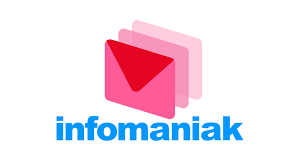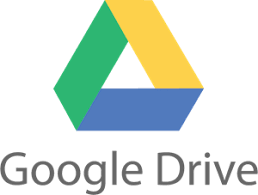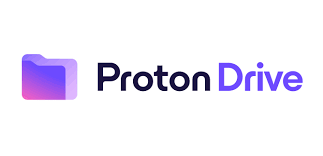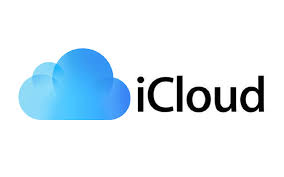Online storage: comparison of the best cloud services in Switzerland
In a world where data security and quick access to files are essential, choosing the right personal cloud service is crucial - especially in Switzerland, a country known for its strict data protection and privacy standards. This article compares five of the leading online storage services - Google Drive, Infomaniak kDrive, ProtonDrive, Apple iCloud and pCloud - to help you choose the service that best suits your needs.

Our selection of the best cloud services in Switzerland
We have selected five high-quality cloud services. Of course, Google drive and iCloud (Apple) largely dominate the cloud market. However, if you want to host your data in Switzerland, Infomaniak and Proton prove to be very competitive with higher quality services. All of these players offer a limited amount of free storage, and if you want to expand your data storage, you will of course have to pay to upgrade your storage plan.

15 GB
4.90 CHF/month for 2 TB
11.80 CHF/month for 6 TB

15 GB
1,99 $/Monat für 100 GB
9,99 $/Monat für 2 TB

1 GB
4,00 €/Monat für 200 GB
10,00 €/Monat für 500 GB

5 GB
0,99 $/Monat für 50 GB
2,99 $/Monat für 200 GB, 9,99 $/Monat für 2 TB

10 GB
3,99 €/Monat für 500 GB
7,99 €/Monat für 2 TB, Optionen auf Lebenszeit: 500 GB für 199 €, 2 TB für 399 €
Google Drive: world leader with a wide range of functions
Google Drive is one of the most popular cloud services and offers 15 GB of free storage space as well as full integration with other Google services (Docs, Sheets, Slides, Gmail, etc.). It enables real-time collaboration, making it the first choice for teamwork. Its compatibility with all major platforms (Windows, macOS, iOS, Android) and its file sharing features are major strengths.
However, Google Drive has shortcomings in terms of data protection. Google uses user data to optimise its services and for targeted advertising, which can be a disadvantage for those who value security and data protection. Furthermore, despite robust security, the service does not offer end-to-end encryption by default. Google's customer service is clearly below average compared to other companies such as Infomaniak or Proton.
Infomaniak kDrive: Swiss and eco-responsible solution
Infomaniak, based in Switzerland, offers kDrive, a cloud storage solution that is particularly suitable for Swiss users who value data protection. With data centres located exclusively in Switzerland, kDrive ensures that users' data is protected by Swiss data protection laws. It also offers 15 GB of free storage, competitive paid plans and file synchronisation and sharing features.
Infomaniak is also characterised by its ecological commitment. Its data centres are powered by 100% renewable energy and the company is committed to reducing its carbon footprint, making it an ethical choice for environmentally conscious users.
Within a few minutes you can reach a technician who can help you with your questions.
ProtonDrive: Data protection first
ProtonDrive was developed by the ProtonMail team and is the perfect choice for users who care about privacy. ProtonDrive is based in Switzerland and offers end-to-end encryption, which means that even Proton cannot access your files. It is subject to strict Swiss data protection laws and therefore offers excellent security and a high level of privacy.
ProtonDrive is ideal for users who want to protect their files from unauthorised access. The platform is designed to ensure maximum security, with a policy of complete transparency in terms of data management.
Apple iCloud: For Apple users
iCloud is seamlessly integrated into the Apple ecosystem and enables smooth synchronisation between devices such as iPhone, iPad, Mac and Apple Watch. It offers 5 GB of free storage space and enables automatic backup of photos, files and user settings on all Apple devices.
Apple also places a strong focus on protecting user privacy. Although the encryption used is AES-128 (less robust than the AES-256 used by some competitors), Apple does not scan users' files for advertising purposes and restricts data collection.
The main disadvantage of iCloud is that it is primarily intended for Apple users. Although files can also be accessed via a browser on other platforms, the user experience is significantly better on Apple devices. In addition, the free storage space of 5 GB is quite limited, so it is often necessary to switch to a paid plan. Finally, some advanced features for real-time collaboration are missing and customer service is far from satisfactory.
pCloud : Flexibility and security
pCloud is a storage provider based in Switzerland and offers an interesting option for users looking for a combination of security and flexibility. pCloud offers free storage plans (up to 10 GB) and premium subscriptions with a unique lifetime payment option, making it a cost-effective long-term solution.
pCloud is characterised by its security features, including optional client-side encryption (pCloud Crypto), which ensures that only users have access to their files. In addition, pCloud enables cross-platform access and integration with services such as Dropbox, Google Drive and OneDrive, making it easier to manage files across different cloud services.
Allerdings ist die End-to-End-Verschlüsselung von pCloud eine kostenpflichtige Option, was für Nutzer, die standardmässig nach maximaler Sicherheit suchen, ein Nachteil sein kann. Darüber hinaus bietet pCloud zwar gute Speichermöglichkeiten, es fehlen jedoch einige erweiterte Funktionen für die Zusammenarbeit und die native Integration mit Produktivitätstools wie Google Workspace oder Microsoft Office.
What is the best choice for Switzerland?
Which cloud service is the best for users in Switzerland depends on their individual priorities, but we can clearly emphasise the quality of Infomaniak and Proton's services:
ProtonDrive is ideal for those looking for maximum privacy and increased security. Proton is based in Switzerland and therefore benefits from strict data protection regulations.
Infomaniak kDrive is perfect for those who prefer a local solution with a strong environmental ethos and reliable security.
Apple iCloud will be best suited for Apple users looking for seamless integration between their devices.
Google Drive remains the first choice for those looking for advanced collaboration tools and cross-platform flexibility.
pCloud is an excellent option for those looking for a combination of flexibility, security and long-term storage with the option of lifetime payment.
Depending on your specific requirements, whether security, collaboration, costs or local integration, you are sure to find the right personal cloud service for you among these options.
In conclusion, we would like to say that we currently strongly recommend our readers to use a cloud to store your important information (administrative or leisure) so that you can access it from anywhere in the world and, above all, so that it is not lost. If you are hesitant, we recommend that you start with free offers to test the services. However, if you want more services and a customer service that listens to you, the paid offers are more suitable for you. In our comparison, we recommend Infomaniak and Proton which, in addition to a very efficient and easy-to-learn service, also offer other equally important services such as an email client, automated backups, etc.).





